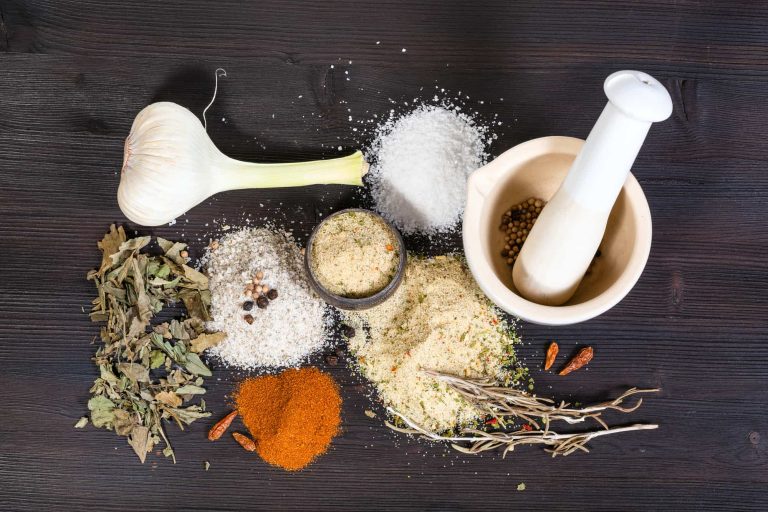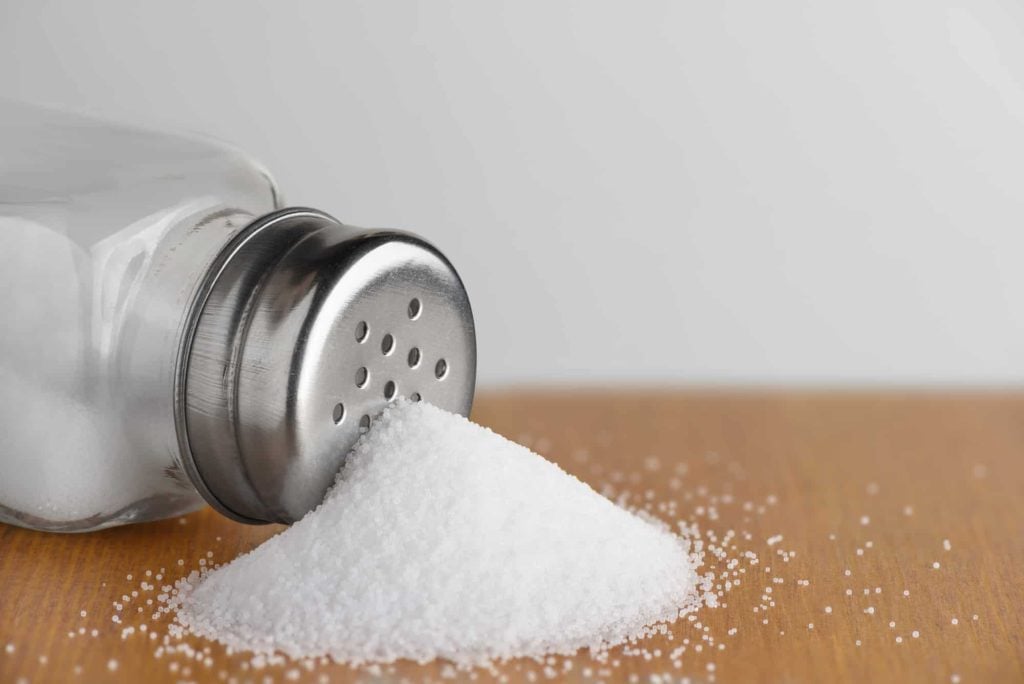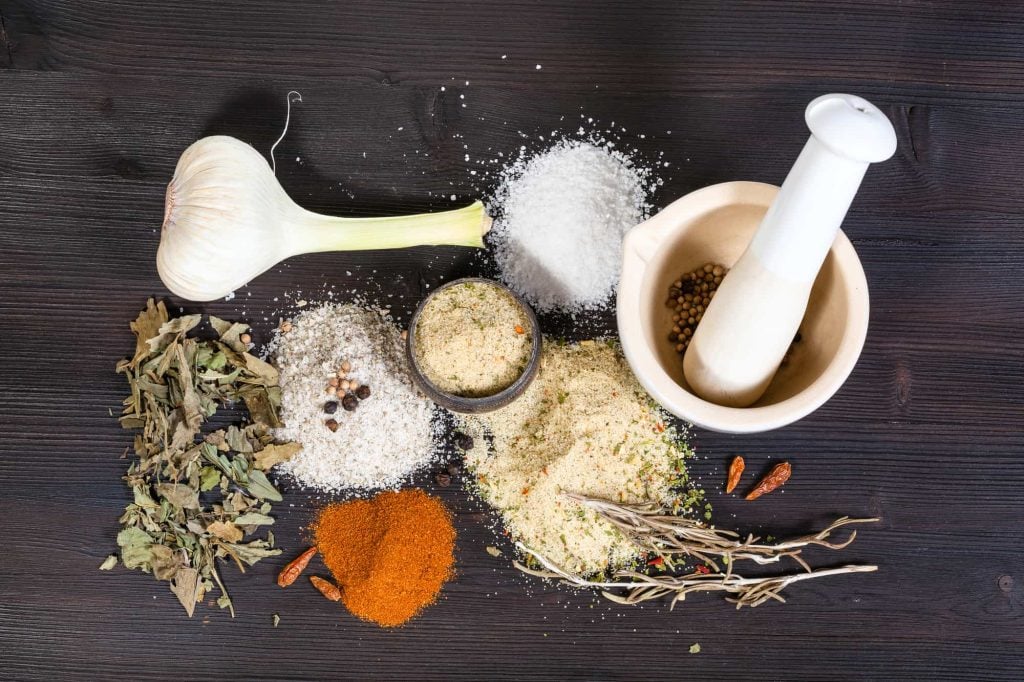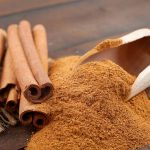Salt is one of the oldest seasonings and preservation ingredients. But can people with Celiac disease or gluten sensitivities have it?
Salt of any kind is generally gluten-free. This includes table salt, iodized salt, kosher salt, Himalayan salt, sea salt, and seasoned salt, but only if not added with a gluten-containing ingredient or exposed to it during processing. We recommend always reading labels.
What brands are gluten-free? Learn more about them below!
Should I Worry About Salt Containing Gluten?
Table salt or cooking salt, in its pure form, has the components sodium and chlorine. It essentially has no gluten.
Naturally, table salt is called rock salt or halite. It can be sold as rock salt or grounded. Salt mainly comes from the ocean and the sea.
Seawater or water from mineral-rich springs evaporates and turns into the salt we know and use. Saltiness is one of the basic human tastes and salt is one of the oldest food seasonings and preservation methods. Salt is a principal source of sodium which is essential to humans and animals more than plants.
It is important in the body because it helps in proper nerve and muscle function, water and electrolyte regulation, usually as an intravenous solution to provide hydration and electrolytes in the body, and as an antimicrobial agent both in food and medical applications (source: NIH).
Plain table salt, iodized salt, and kosher salt are all free from gluten. The difference between them is the addition of iodine and/or anti-caking ingredients.
Iodized salt means it has been added with iodine. But there’s nothing to worry about because iodine doesn’t contain gluten. Kosher salt and plain table salt don’t have iodine and only have sodium and chlorine.
Anti-caking ingredients are ingredients added to products, mostly granular or crystalline products like salt, sugar, flour, and the like, to prevent them from sticking together. They work by absorbing oil or water present. When granules or crystals absorb water or oil, they won’t flow easily and will be hard to use.
A common anti-caking ingredient used in salt is sodium aluminosilicate which is also free from gluten (source: Michigan State University).
The primary source of gluten is wheat, rye, barley, oat, related grains, hybrids like spelt, emmer, and Khorasan, and the products of these grains like malt (source: Gluten Associated Medical Problems).
We still encourage you to read labels and the ingredients list to spot any wheat or gluten-containing ingredient. Look for ingredients that say “wheat”, “flour”, “wheat flour”, “wheat starch”, and others on this list because these ingredients have gluten.
However, if you’re curious about other seasonings like mustard flour or powder and whether they are gluten-free, we’ve addressed that as well.
A “gluten-free” label is not required by FDA for producers or manufacturers to put on their labels. This means that some, if not many, salt brands don’t have this label. However, manufacturers that want to will need to comply with FDA requirements and regulations (source: FDA).
Some brands are gluten-free like Redmond Real Salt and Selina Naturally Celtic Sea Salt.
Is Seasoned Salt Gluten Free?
Seasoned salt, also called seasoning salt, can be regular salt or Himalayan salt added with spices or herbs. Here are some of them and their gluten status:
McCormick
McCormick Himalayan Pink Salt with Black Pepper and Garlic is a gluten-free product as indicated by the label. However, McCormick Culinary Traditional Seasoned Salt doesn’t have this label, nor is it indicated on its website.
Lawry’s
Lawry’s is now owned by McCormick. Lawry’s Seasoned Salt doesn’t have a gluten-free label, nor is it stated as such on its website.
Jane’s Krazy Salt
Jane’s Krazy Mixed Up Salt, like Lawry’s, doesn’t have a gluten-free label on its packaging and its website doesn’t indicate that it is.
Morton
Morton Season-All Seasoned Salt doesn’t have a gluten-free label as well and the website doesn’t indicate that it is free from gluten.
Himalayan Pink Salt
Himalaya pink salt is gluten-free because it is still up to 98% sodium chloride, with the rest coming from minerals such as magnesium, calcium, and potassium which gives it its pinkish color (source: Medical News Today).
Sea salt
Sea salt is also generally gluten-free. Sea salt is a term used to refer to salt made from evaporating ocean or seawater. It contains trace minerals that set it apart from regular table salt. Otherwise, they have similar nutritional value (source: Mayo Clinic).
Salt, in any form, is typically gluten-free unless added with a gluten-containing ingredient or exposed to one during processing. We hope you found this article helpful!







Comments are closed.